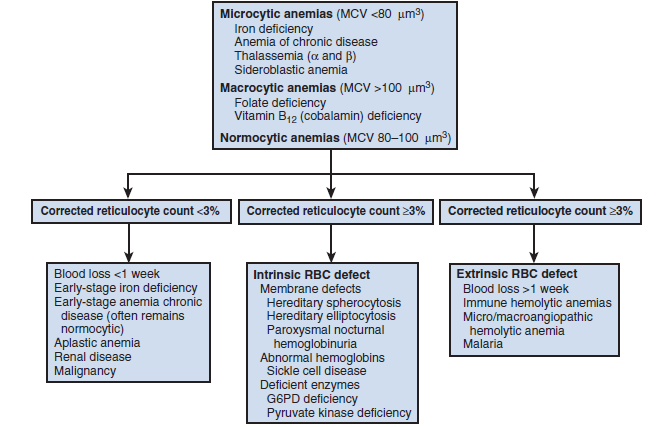- Definition – ↓in Hb and Hct
- Hb – men (140-180g/l), women (120-160g/l)
- Hct – men (40-52%), women (37-47%)

Macrocytic nonmegaloblastic anemias
- Haemolytic anemia (reticulocytosis)
- Liver disease
- Hypothyroidism
- Myelodysplasia
Pathophysiologic classification
- Based on reticulocyte count
- Hypoproliferative – BM fails to appropriately respond to anaemia, but cells that are produced are normal. RC is low and erythrocyte (Er)morphology is normal
- Maturation defects – BM is attempting to respond to anaemia, but cells produced are unable to enter the circ and die within BM. RC is low and er morphology is abnormal
- Cytoplasmic maturation defects – assoc with microcytic er
- Nuclear maturation defects – assoc with macrocytic er
- Hyperproliferative (haemolytic) – increased destruction or loss of er. BM attempts to respond to anemia and produces mature er but is unable to fuly compensate for increased RBC loss. RC > 3% and MCV is also normally high.
Reticulocyte count
- Percentage of young er containing RNA which can be identified as reticulin using methylene blue staining
- No. of reticulocytes/total no of er
- RC increases if RBC production by BM increases, therefore, ↑RC is the primary indicator of ↑RBC production
- Corrected RC – since RC represents a ratio, a decreased in total RBC count may result in an increased RC, even if reticulocyte production by BM has not increased.
- CRC = reticulocyte x (patient Hct / 45)
- CRC >3% means a good BM response, effective erythropoeisis
- CRC<3% means a poor BM response, ineffective erythropoeisis
